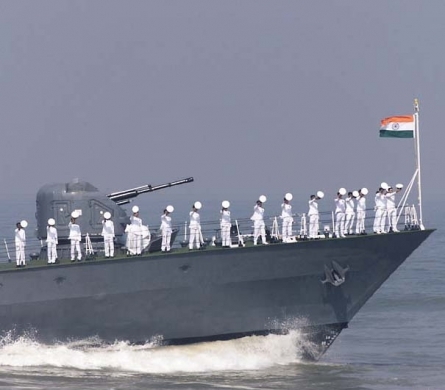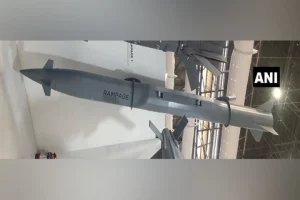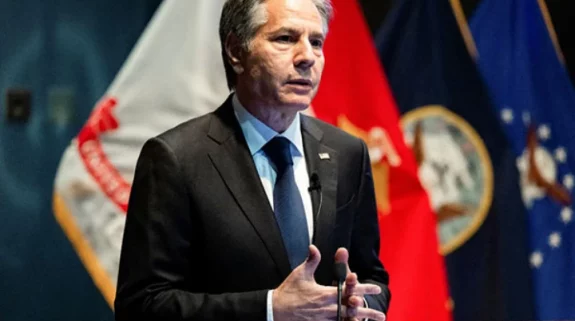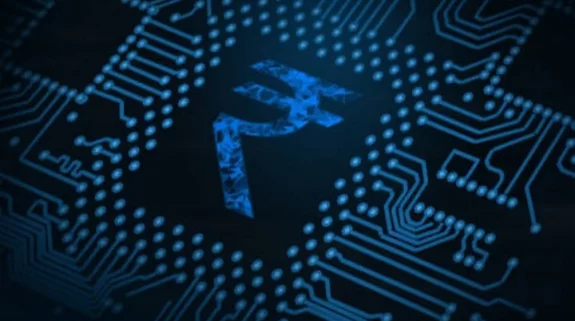By Vijay Sakhuja
The Indian Navy has firmly catapulted itself from being a ‘net security provider’ to ‘preferred security partner’ in the Indian Ocean. The recently concluded Mission Sagar-I (food aid and medicines to Maldives, Mauritius, Seychelles, Madagascar and Comoros), Sagar-II (food aid to Sudan, South Sudan, Djibouti and Eritrea) and Sagar-III (flood relief material to Cambodia) are not only noteworthy particularly during Covid-19 pandemic times, but are emblematic of a force that ‘stands by’ to provide assistance to Indian Ocean littorals the necessary material help and assistance needed to overcome devastation caused by natural calamities.
The Indian Navy has also received accolades for being the first responder across the spectrum of threats and challenges such as maritime terrorism, piracy, maritime crime, to natural disasters requiring search and rescue (SAR) and humanitarian assistance and disaster relief (HADR). By all counts, its Mission Based Deployments (MBD) have proved successful, and mission-ready ships and aircraft are seen operating 24×7 in various parts of the Indian Ocean from the east coast of Africa to Australia, and in the Arabian Sea and the Bay of Bengal.
The term ‘preferred security partner’ first appeared in Indian Navy’s lexicon in 2019. Defence Minister Rajnath Singh in his address to the Naval Commanders’ Conference acknowledged Indian Navy’s foreign cooperation initiatives through its ‘capability enhancement’ and ‘capacity building’ programmes for the foreign navies. He observed that these initiatives had transformed the Indian Navy into a “Preferred Partner for engagement in the Indian Ocean Region”.
Today, the Indian Navy offers niche training in the field of naval warfare, submarine and aviation training, and advanced education in marine engineering-electronic-electrical domains. For instance, over 250 international personnel from 20 countries are trained annually at INS Shivaji which is meant for marine engineering training.
The Indian Navy also hosts several specialist naval programmes and maritime forums for dialogue and interactions at various levels such as the Sea-Rider programme for Junior Officers; Exercise SAMBANDH; Regional Maritime Security Course for mid-level Officers; Goa Maritime Conclave for Chiefs of Navy, Milan series of exercises, and numerous bilateral and trilateral maritime-naval cooperation exercises. The Trilateral Cooperation on Maritime Security (TCMS) in the Arabian Sea which involves India, Maldives and Sri Lanka through the Dosti series of exercises to address common maritime security threats and challenges and enhance security through cooperative measures, also merits mention.
At the pan-Indian Ocean level, the India Navy not only conceptualized the Indian Ocean Naval Symposium (IONS), it is currently the co-Chair of the IONS Working Group (IWG) on HADR and Information Sharing and Interoperability.
In 2018, the Indian Navy set up the Information Fusion Centre- Indian Ocean Region (IFC-IOR) to support the maritime domain awareness (MDA) needs of Indian Ocean littorals. The IFC-IOR is the regional hub and presently interacts with 21 countries and 3 multinational organisations; expressions of interest have been sent to another 15 countries and the number of stakeholders could go up to 40. India has also signed White Shipping Agreement (WSA) under which navies of respective countries exchange information on the movement and identity of commercial merchant vessels through the Merchant Ship Information System-Information Fusion Center (MSIS-IFC).
The robustness of the IFC-IOR has been further reinforced by embedding International Liaison Officers who collate information from their ‘country areas of interest’ through their respective maritime security agencies which are then shared with partners. The IFC-IOR also publishes a Monthly Maritime Security Update (MMSU), a compilation of information on various illegal and criminal activities and accidents arising from natural events that threaten merchant vessels, shipping industry, and other maritime stakeholders in the wider IOR.
These initiatives by the Indian Navy have not only strengthened maritime security and stability in the Indian Ocean Region but also transformed the Indian Navy into a ‘Preferred Partner’ for engagement in the region.
It is also noteworthy that Indian Navy’s ‘defence diplomacy’ has been creatively dovetailed into Indian foreign policy. The 2004 Indian Ocean Tsunami disaster, notwithstanding the destruction it caused to life, materials and livelihoods, was a trigger for ‘disaster diplomacy’. It has now emerged as a tool of Indian statecraft and foreign policy. New Delhi willingly takes the lead to build diplomatic estate and join hands and offer assistance to affected people and countries. In this context, Prime Minister Modi’s SAGAR (Security and Growth for All in the Region) is an important foreign policy initiative and was recently operationalized to provide assistance to friendly foreign countries to overcome natural calamities and COVID-19 pandemic.
(The writer is a former Director, National Maritime Foundation, New Delhi)




















